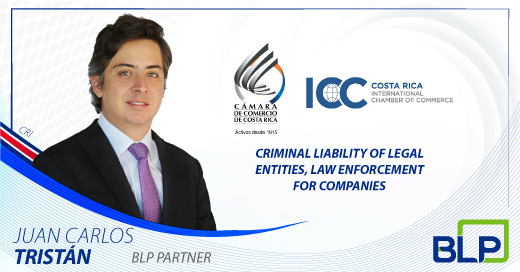On June 6, 2019, the Congress approved the new Law for Criminal Liability of Legal Entities on Domestic Bribery, Transnational Bribery and other Crimes (“Law”), as part of the commitments acquired by the country to enter the OECD.
According to the international standards, the Law imposes criminal liability on legal entities (national or foreign), and other commercial vehicles (such as trusts, associations, and foundations) involved in corruption activities such as domestic or transnational bribery. Likewise, it fines holding companies for the actions of their subsidiaries and affiliates, the foregoing without limiting the criminal responsibility of the individuals involved in such activities.
Among the innovations of the Law there is the incentive for companies to implement effective transparency and business ethics programs, as well as internal mechanisms for anticorruption and internal controls, which will serve as an affirmative defense to mitigate any applicable sanctions.
Below is a brief summary of the main aspects of the Law:
Actions that are Sanctioned:
- Domestic bribery, regardless of the value.
- Transnational bribery, regardless of the value.
Fines/Penalties:
- Fines from 1,000 to 10,000 base salaries (approximately between US$715,000.00 and US$7,150,000.00 ).
- Loss or suspension of benefits or Government subsidies for a period of 3 to 10 years.
- Inability to participate in public tenders or bids for a period of 3 to 10 years.
- Dissolution of the legal entity.
How to Mitigate Fines/Penalties?
- Having an effective anti-corruption program.
- Having independent compliance officers.
- Report infractions and/or collaborate with investigations.
How to Implement an Anticorruption Program according to the Law?
- Identify activities, habitual or sporadic, that increase the risk of committing illegal actions.
- Establish protocols, codes of ethics, rules and specific procedures that prevent the commission of crimes.
- Schedule a periodic risk assessment and monitoring of the compliance program.
- Set up a disciplinary system that adequately sanctions non-compliance with the compliance program.
- Perform an external audit of your accounting and financial controls.



